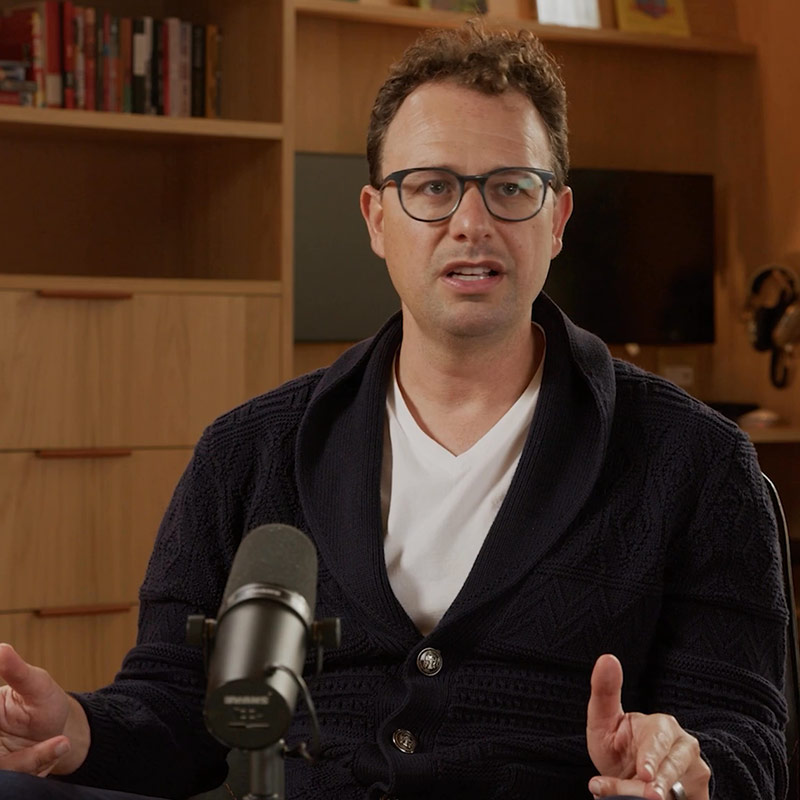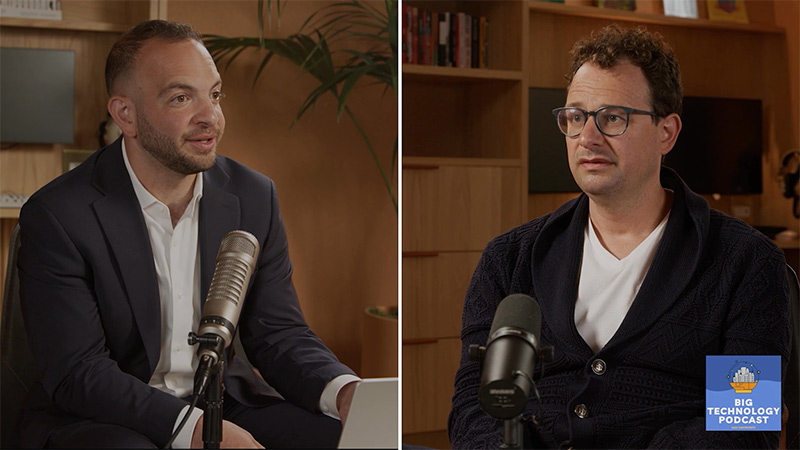Large language models (LLMs) have become the hype of technology. With high demand comes high supplies. And Anthropic as one of the key players in the arms race, wants to be a little different.
Since ChatGPT was introduced by OpenAI, other tech companies followed suit. And Anthropic enters the battle with Claude.
Dario Amodei, CEO and co-founder of Anthropic, offered a deeply reflective and technically grounded perspective in a recent discussion about the trajectory of this AI war and development.
While many public figures in the AI space oscillate between utopian hype and doomerist paranoia, Amodei presented a far more nuanced and measured viewpoint.
His insights, especially regarding safety, competition, governance, and model capabilities, illuminate the mindset of one of the industry's most thoughtful leaders.
From the outset, Amodei emphasized the importance of taking AI risks seriously, but he also stressed the danger of jumping to conclusions.

Sitting with Alex Kantrowitz in a Big Technology podcast, Dario Amodei said that:
"So I think these terms are totally meaningless. I don't know what AGI is. I don't know what super intelligence is. It it sounds like a marketing term."
"Yeah, it sounds like, you know, something something designed to activate people's dopamine."
Amodei's framing acknowledged the genuine unpredictability inherent in building increasingly complex AI systems, in what he described as the possibility that AI could evolve in ways that even its creators don’t anticipate.
However, unlike others who leap to catastrophic forecasts, Amodei advocated for keeping the conversation rooted in current capabilities and practical solutions.
But still, as one of the leaders in the AI field, Amodei knows well like others, that AI is the future.
He even credited rivals like OpenAI, Google, Meta and others, saying that they've done a great job.
He praises competitors, but downplays the notion that the field is a “winner-take-all” race. Instead, he sees a multipolar world where many labs contribute to progress and safety in different ways.
"I am indeed one of the most bullish about about AI capabilities," he said.
And when it comes to profiting from the AI trend, companies that create AIs and have users, will profit, but not in the way most people think.
He addresses the popular claim that AI companies are burning through billions without profits. He frames this critique as overly simplistic.
Using a stylized example, he describes a cycle in which a model might cost $100 million to build and then generate $200 million in revenue. However, the same year, the company might spend $1 billion to build the next model, making it look like the company lost money overall. In this view, each model is profitable like a venture investment, even if the company’s overall books show short-term losses.
This helps explain why AI labs keep raising money—they’re funding future models that will take time to mature.
But the company itself loses money every year because it’s constantly spending massive amounts up front to develop newer, more powerful models before the older ones finish paying off.
In other words, each model ends up being profitable. But since the race forces competitors to keep on advancing, an increasing amount of money needs to be burned.

Since future development of AI tools is inevitable and that as time progresses, AIs will definitely get smarter, Amodei cannot deny that long-term existential risks exist.
"You know, I've looked at their arguments.They're a bunch of gobbledegook. The idea that these models have dangers associated with them, including dangers to humanity as a whole, that makes sense to me."
"The idea that we can kind of logically prove that there's no way to make them safe, that seems like nonsense to me."
Amodei acknowledges that there are possible risks in the long run. However, he pushed back against "doomer" narratives, saying that it's equally dangerous to dismiss them or to act like people know how everything will play out.
His voice represents a rare middle ground in the AI landscape.
While others debate whether we are building gods or monsters, Amodei and Anthropic seem focused on something more concrete: building systems that do what people intend, in ways people can trust, without pretending to have all the answers.
That, in itself, may prove to be one of the most responsible—and ultimately impactful—stances in the race toward advanced AI.
As Anthropic grows, Amodei hopes that its heft can help him influence the industry’s direction.
